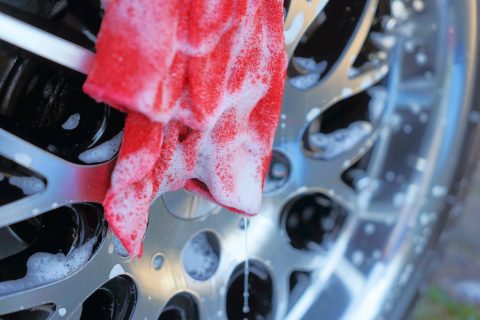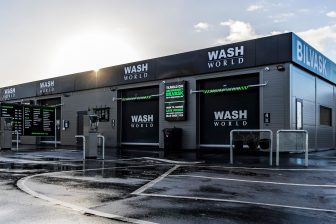
Responsible Car Wash Scheme launches hand car wash licence pilot project in the UK
The Responsible Car Wash Scheme (RCWS) launches a pilot project today, funded by the Home Office in the UK, to test the effectiveness and value of introducing licensing for car wash businesses. The pilot is based on a RCWS accreditation scheme for hand car washes to ensure these businesses treat employees, customers and the environment fairly.
The pilot will be independently evaluated by Nottingham Trent University (NTU) and is supported by the Gangmasters and Labour Abuse Authority (GLAA) and the Police. It is funded jointly by the Home Office and a consortium of RCWS supporters.
6.000 to 7.000 hand car washes
The number of hand car washes in the UK is between 6,000 and 7,000. Whilst some operate lawfully, this has consistently been identified as an industry where workers are at risk of exploitation ranging from poor working conditions to modern day slavery. Legitimate businesses are undercut by those breaking the law, creating an unfair competitive landscape. Many operate from unsuitable premises that discharge dangerous effluent into water courses and where staff are given ineffective protective equipment when handling dangerous and corrosive cleaning materials.
Ian Clark, professor of work and employment at Nottingham and Trent University said: “Our research into hand car washes has shown widespread non-compliance which has far reaching implications for workers and the environment. The government recognises that an accreditation scheme designed to promote compliance and drive up standards for hand car washes can play a role in preventing exploitation of workers and water pollution in this sector. Our role is to explore the efficacy of the RCWS trial and test this as a workable system to implement mandatory licencing on a national level.”
Risks resurface after lockdown
Teresa Sayers, managing director, RCWS said: “With car washes now reopening after lockdown, risks are resurfacing with regards to violation of labour, employment, health and safety and environmental regulations. RCWS aims to ensure compliance, improve standards, and give consumers confidence that they are choosing a fair car wash, by accrediting businesses that adhere to the RCWS Code of Practice. With Home Office backing and an independent evaluation, this has the impetus it needs to work on a nationwide level.”
The pilot builds on previous RCWS initiatives such as a voluntary accreditation scheme working with supermarkets and national network operators.
Also read:



